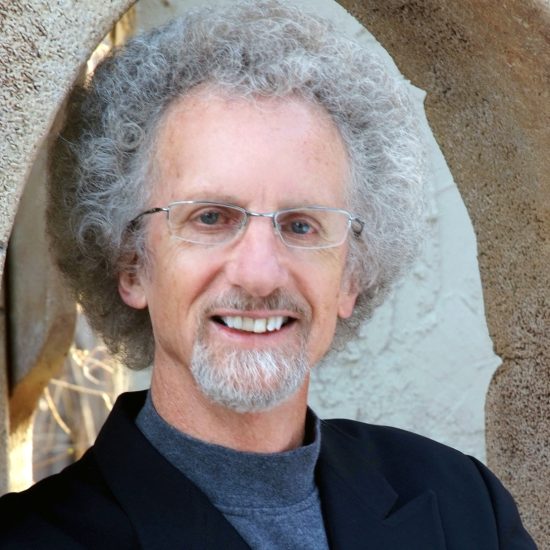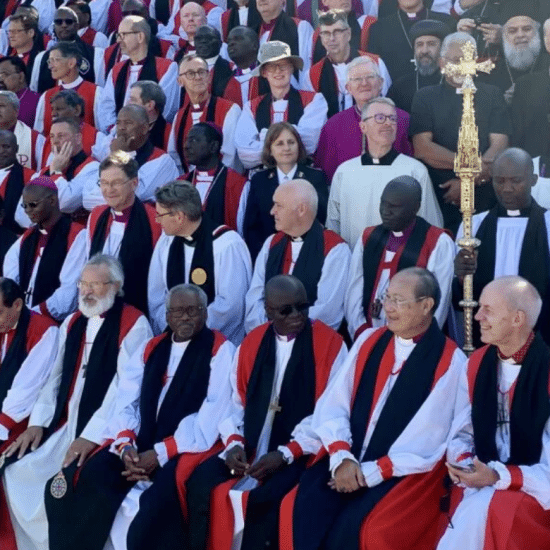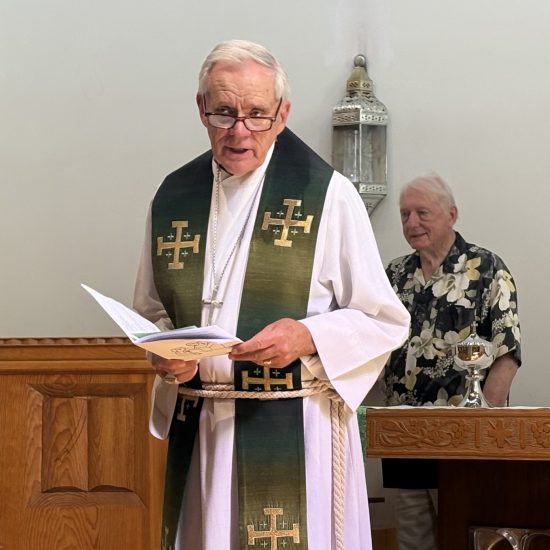AUSTIN, Texas — A group of under-40 evangelicals attending a leadership meeting in Texas announced April 28 a new initiative to mobilize American Christians to eliminate nuclear weapons.
"We have all heard about this broadening of the evangelical agenda," said Katie Paris of Faith in Public Life, a progressive group for advancing faith in the public square. "Today something new is happening. Younger Christians are setting the agenda — elevating and acting on an issue that has been off the popular radar for decades. They are engaging politics in a way that is very different from the generation that came before them, defying easy political categorization and breaking through theological division."

Tyler Wigg Stevenson
|
Tyler Wigg Stevenson, 31, an ordained Baptist minister and member of First Baptist Church in Nashville, Tenn., is the founding director of the Two Futures Project, a movement of American Christians for the global abolition of nuclear weapons.
"The truth that has been recognized in foreign-policy circles over the past several years must now make its way into the public consciousness," he said in a conference call with reporters to announce the initiative. "In a post 9/11 era the weapons that we relied upon as our ultimate ace in the hole have in fact become the greatest threat to us all."
Wigg Stevenson said the doctrine of mutually assured destruction that produced a stalemate between the United States and Soviet Union during the Cold War "is now obsolete."
"A two-tiered world of nuclear haves and have-nots will eventually lead to uncontrollable proliferation and an un-deterrable terrorist bomb," he said, "which would not only cause mass casualties but catastrophic economic effects that would leave no corner of the planet untouched."
Wigg Stevenson said nuclear weapons touch on a number of moral concerns, including protection of innocent life, care for creation and concern for the poor. He labeled reliance on weapons of mass destruction "enacted blasphemy."
"Who do we think we are to claim authority over life itself and the welfare of future generations?" he asked. "That power belongs to God alone."
Jonathan Merritt, national spokesperson for the Southern Baptist Environment and Climate Initiative, spoke in support of the initiative.
"Nuclear weapons are not only unacceptable, they are un-Christian," Merritt said. "As followers of Jesus we serve a God that abhors the shedding of innocent blood."
"We understand that those that will be affected by the detonation of a nuclear bomb are not numbers," Merritt said. "They are objects of God's love, wonderful creations made in his image."
Merritt said he is aware that some people think the goal of eliminating nuclear weapons worldwide is impossible.
"Calling something impossible is often a tool of distraction employed by those who simply lack moral courage," he said. "As Christians, our decisions must be made on morality, not plausibility. We serve a God through which all things are possible. So when Christians hide behind the skirt of probability, it is the ultimate act of distrust."
Merritt said he supports the Two Futures Project as a Southern Baptist, citing the 2000 Baptist Faith & Message article calling it the duty of Christians to seek peace and do all in their power to end war.

Jonathan Merritt
|
"Southern Baptists have always placed immense value on human life, which is an important part of the pursuit of peace," Merritt said. "Therefore I find this effort wholly consistent with both my theological convictions and a long-held Baptist belief."
Merritt said he also supports the initiative as a "member of a rising generation of Christ-followers who engage public policy differently than the generation that came before us."
"As we attempt to mirror the ministry of Jesus Christ by promoting compassion and justice and peace, we seek to transcend partisanship, and we welcome the opportunity to partner with people of mutual good will," he said.
Merritt, 26, the son of former Southern Baptist Convention president James Merritt, drew criticism from denominational leaders in March 2008 for spearheading the environmental declaration criticizing convention resolutions as too timid on the issue of climate change.
Recently Merritt wrote an opinion article in USA Today saying Christians should show more compassion to gays. The SBC Ethics & Religious Liberty Commission responded with an e-mail to Baptist journalists citing criticism by the convention's "gender-issues specialist," Bob Stith. Stith said Merritt's article did a "disservice" to evangelicals who are "actively engaged in loving outreach to homosexuals," including the SBC's own Task Force on Ministry to Homosexuals, formed in 2001.
Merritt told Associated Baptist Press he does not expect similar criticism for supporting the Two Futures initiative, because it is endorsed by prominent conservative voices including Prison Fellowship founder Charles Colson.
The Southern Baptist Convention adopted resolutions supporting multilateral nuclear disarmament in 1978, 1979, 1982 and 1983.
The most recent Southern Baptist resolution mentioning nuclear weapons came in 2002. It urged national leaders to prevent terrorist-supporting nations from attaining weapons of mass destruction.
Merritt said he "would love to see" a new SBC resolution affirming those previous stands.
Wigg Stevenson, author of Brand Jesus: Christianity in a Consumerist Age and articles in magazines including Christianity Today, Relevant and Sojourners, unveiled the Two Futures Project at the Q conference, a gathering in Austin, Texas, of about 500 Christian leaders interested in engaging culture for common good.
Wigg Stevenson said he received "an astonishing amount of support" from across the theological and political spectrum. He said in the last few days he received invitations to speak in churches with combined memberships of more than 20,000 people.
Bob Allen is senior writer for Associated Baptist Press.






